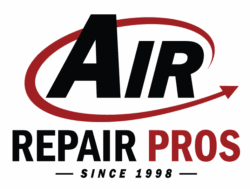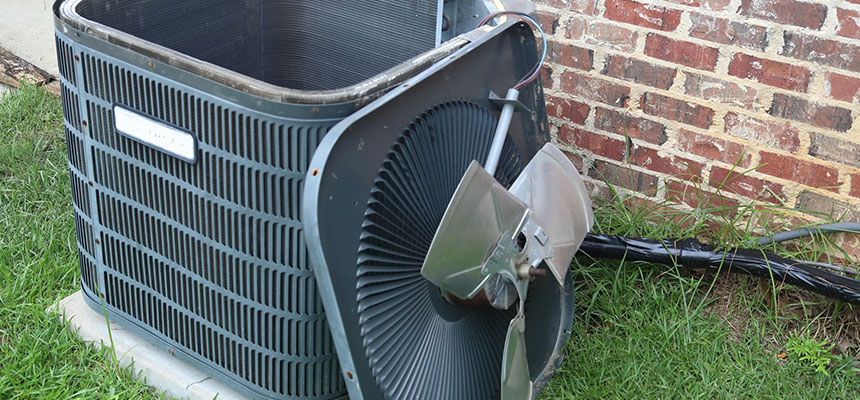Strange as it may seem, air conditioners do freeze up – and for several reasons. A lot of repair calls are being made by users on how their frozen air conditioners can be fixed. In this article, we’ll discuss the various reasons why air conditioners freeze up.
Most of the time, your air conditioner freezes up because the heat transfer process is interrupted. When proper heat transfer doesn’t happen, moisture that has built up on your system’s evaporator coil can freeze because of the ice-cold refrigerant.
When this build-up of ice is left untouched, it can cover the whole indoor unit of the air conditioning system and may even reach the outdoor components. If this is happening repetitively or the system has been frozen for a long time, the entire unit can be damaged beyond repair. That’s why it’s highly recommended that you have your air conditioner fixed when you notice that it’s freezing up.
Airflow Is Poor
To lower a room’s temperature, an air conditioner draws warm air and directs it to the ductwork and evaporator coils, which then move the hot air outside. In this process of heat transfer, air moisture can accumulate on the coils due to the water condensation process. The refrigerant absorbs heat, which then prevents the built-up moisture from reaching freezing point.
The problem occurs when warm air is not reaching the coils. The heat transfer process will not take place if the airflow is obstructed because nothing is preventing the moisture from freezing.
Poor airflow can be caused by a variety of reasons, such as:
- Filters not replaced or cleaned for three months or more
- Furniture and other objects blocking the supply registers
- Dampers or gates are blocked or closed
- Debris or dust clogging the air ducts
- A leak in the air duct
Homeowners should be able to detect and investigate the first three by themselves. The last two, however, are more tedious and better left to professionals.
If you’re suspecting that there’s a problem with the air ducts, call a professional HVAC technician.
Leaking Refrigerant
When the refrigerant is under pressure, its temperature rises. When it expands, the temperature goes down. This is the effect used by air conditioners in cooling the evaporator coil down and absorbing heat from indoor air and moving it outside.
Pressure can drop significantly when the refrigerant leaks. The refrigerant then expands more to compensate for the lack of pressure, which in turn lowers the temperature of the evaporator coils more. This shift in temperature is not noticeable in the beginning but as more refrigerant leaks, more ice starts to accumulate.
A professional HVAC technician should be able to rectify this issue by fixing the leak and recharging the refrigerant, provided the unit is kept in good condition and still has some useful years left on its lifespan. If your unit is quite old, a leaking refrigerant is reason enough for it to be replaced.
Outdoor Temperature Is Too Low
Warm ambient temperature is required by air conditioners in transferring heat from inside a room and outside the home. When the outdoor temperature is below 62 degrees, the system may not operate properly, causing ice to accumulate on the coils.
Low temperatures during summer nights can still occur in some rare occasions and conditions. That’s why it is highly advised to set your thermostat to turn the air conditioning off at night. Come fall, you should also take steps to shut the air conditioner down.
Evaporator Coils Are Dirty
You may not realize it, but too much debris and dust can build up in your air conditioning system. The ductwork or air filter is doing a good job filtering dirt but over time, it can still accumulate in your system’s evaporator coils.
The refrigerant won’t be able to efficiently absorb heat from the warm air inside when there’s a layer of dirt that has accumulated on the coils. Moisture then builds up on the coil and freezes, which further limits the heat transfer.
Inspecting and cleaning an air conditioner’s evaporator coils is a task better left to professionals because it can cause damage when done improperly.
Blower Fan Is Damaged
The blower fan’s roles are to pull the warm air through the air ducts and then re-distribute the cooled air throughout the room. If the fan is broken or damaged or if the motor malfunctions, heat transfer stops. This causes a build-up of ice on the air conditioner’s evaporator coils if the system is allowed to continue running.
Replacing the fan or the motor should only be done by a trained professional because of the hazards involved in dealing with electricity and high voltages.
What Should You Do if Your Air Conditioner Freezes Up?
As discussed, there could be various reasons for your air conditioner to freeze up. You should be able to resolve issues such as closed dampers, blocked vents, or dirty air filters. Other more complicated issues like blower fan problem, dirty evaporator coils, or refrigerant leak require a certified HVAC technician to fix. A frozen air conditioner won’t be able to cool down the room efficiently, which can also lead to higher electric bills.
For your professional air conditioning service and repair needs, Air Repair Pros McKinney is here to help. We have certified HVAC technicians with years of experience that can help any air conditioning issues you may be having. Contact us and let’s talk about it.

